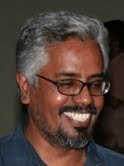Life in a Metro


The Metro within
The city and the urbanscapes of life and its tribulations have entered the mainstream of Hindi cinema recently. The city was there earlier too, but it was a sort of liminal presence, a space one took refuge in one was never 'at home' there. Its values were not consonant with the diegetic centers of the narratives of films from of the Raj Kapoor variety. Vegetating within the national-developmentalist ideology, the city was a place where money and ruthless ambition ruled the roost, and where humane feelings and tenderness had no place or time.
But in recent Hindi movies like Life in a Metro (Anurag Basu) city is no longer a 'place of arrival' but where one simply is. The feeling of awe and wonder at the sight and pace of the city, its anonymity etc are passé. There is no longer the feeling of shock or alienation; instead it is a place that totally engrosses its inhabitants, inexorably drawing them into its vortex. So, like earlier, these films do not place the rural at a moral highground as the counterpoint to urban values and ways of life. Life in the city now is something that seeks its own redemption and drawing from its own resources and conflicts. Moreover, for these characters, there is no longer a village to dream of or return to.
But significantly, even while the film deals with the contemporary conflicts of a globalised Indian city life, the plight of women remain almost the same. The three women in the film, the mother Shivani (Nafisa Ali), and her daughters Shikha (Shilpa Shetty) and Sruti (Konkana Sen Sharma) find it a very difficult place to realize themselves, or express their sensuality. Shivani joins her old flame Dharmendra, who left her decades back to pursue his career, but their relationship ultimately finds its consummation in death. Shikha who is bored with her busy and unfaithful husband, moves till the brink of breaking free from the moral prisons of the family, but only to rush back to its rusty security. Her sister, who is in endless search for the groom of her choice, had to literally grab him back on the day of his wedding. And woven through the lives of these three women is the life in the metro, one that is seething with restless ambition, lust and desire for pleasures. But only men seem to be able to access the new freedoms opened up by the new economy.
As a result, the culture of self-denial follows women in the globalised city too. If for Sruti it is a constant search for the right man, for Shikha it is a dangerous lure, whose furtive physicality sends her scurrying back to the familiar embrace of the adulterous husband and to the confines of the family. For their mother, the reunion, which is a liberating moment in the film, ends up as yet another denouement of self-denial, ending in her own death. Neha, the ambitious girl who attempts to sleep her way to success, has to return to her lover's hands, virtually reborn, 'reformed' and domesticated.
Why should all these narratives which splurge in the adulteries of men, teeter at the edges of any transgression on the part of female? It is a question that looms large in the face of our variety of globalisation, whose gender biases are bursting in its seams.


2 Comments:
This is one of my all time fav films, CV! And this is one of the best reviews that I hv come across till now! Thx!
Hey,
Your review brings out one major problem with the way people think.
Really good review :)
I have not yet seen the movie. Will try to do that soon...
Post a Comment
Subscribe to Post Comments [Atom]
<< Home